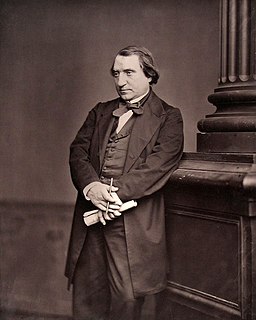A Quote by Allen W. Wood
Popular religion since the time of Kant and Fichte has gone in a direction they tried to prevent and that has been disastrous for the humanity both of believers and of the rest of us. Look at the role of religion in Republican presidential primaries if you need any confirmation of this last statement.
Related Quotes
Both Kant and Fichte thought of traditions of revealed religion as ways of symbolically (that is, with aesthetic emotional power) thinking about our moral condition. Both thought that religion would become more and not less powerful, emotionally and morally, if the claims of scriptures and religious teachings were taken symbolically rather than literally (whatever 'literally' might mean in the case of claims that are either nonsensical or outdated or historically unsupportable if taken as metaphysical or historical assertions).
What our view of the effectiveness of religion in history does at once make evident as to its nature is--first, its necessary distinction; second, its necessary supremacy. These characters though external have been so essential to its fruitfulness, as to justify the statement that without them religion is not religion. A merged religion and a negligible or subordinate religion are no religion.
You don't feel you have the same voice in a presidential election if you live in a solid blue or a solid red state. I also don't think we've educated voters well on the different ways in which primaries work in different states. It doesn't need to be the case that you end up with one Democrat and one Republican, you have open primaries, you can have jungle primaries. There are various permutations and combinations of how to do this.
It is said that peace is the basic tenet of all religion. Yet it is in the name of religion that there has been so much disturbance, bloodshed and persecution. It is indeed a pity that even at the close of the twentieth century we've had to witness such atrocities because of religion. Flying the flag of religion has always proved the easiest way to crush to nothingness human beings as well as the spirit of humanity.
I suspect that religion is a necessary evil in the childhood of our particular species. And that's one of the interesting things about contact with other intelligences: we could see what role, if any, religion plays in their development. I think that religion may be some random by-product of mammalian reproduction. If that's true, would non-mammalian aliens have a religion?
Never has any one been less a priest than Jesus, never a greater enemy of forms, which stifle religion under the pretext of protecting it. By this we are all his disciples and his successors; by this he has laid the eternal foundation-stone of true religion; and if religion is essential to humanity, he has by this deserved the Divine rank the world has accorded him.
Yet Buddhism is four hundred years older than Christianity, and if it's not a universal religion I don't know what a universal religion is. There's also a strong focus on selectionism and the notion that religion plays a functional role in the evolutionary process. But religion is dysfunctional all the time, as well as functional. It's not so simple.

































